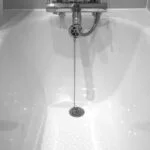Are you interested in how to become a buyer for home decor? The role of a buyer in the home decor industry is crucial for sourcing the best products and staying ahead of the latest trends. Buyers play a significant role in selecting merchandise, negotiating deals, and ensuring that the inventory meets the needs and preferences of customers. Without skilled buyers, businesses may struggle to offer innovative and appealing products to their clientele.
In order to excel in this role, individuals aspiring to become buyers for home decor must possess specific qualifications, education, and skills. A keen eye for design trends, strong negotiation abilities, excellent communication skills, and a solid understanding of market demands are essential qualities for success in this field. By having a combination of these skills and qualifications, buyers can effectively source high-quality products that resonate with customers.
Furthermore, staying updated on the latest home decor trends is a vital aspect of being a successful buyer. Understanding consumer preferences and predicting upcoming trends allow buyers to make informed decisions when selecting products for their inventory. By continuously researching and analyzing market trends, buyers can stay ahead of competitors and offer unique and fashionable items that appeal to their target audience.
Qualifications and Skills
Educational Background
To become a successful buyer for home decor, having the right educational background can be crucial. Many employers look for candidates with a bachelor’s degree in business, merchandising, or a related field. This provides the foundational knowledge and skills needed to excel in this role. Courses in marketing, finance, and supply chain management can also be beneficial for aspiring buyers in the home decor industry.
Experience and Skills
In addition to education, gaining relevant experience and developing key skills is essential for becoming a buyer for home decor. Previous experience in retail, purchasing, or inventory management can provide valuable insights into the industry. Strong analytical skills, attention to detail, and the ability to make data-driven decisions are also important traits for buyers. Excellent communication and negotiation skills are necessary when dealing with suppliers and vendors.
Professional Certifications
Obtaining professional certifications can further enhance your credentials as a buyer for home decor. Certifications such as Certified Purchasing Professional (CPP) or Certified Professional in Supply Management (CPSM) demonstrate your expertise and commitment to the field. These certifications can help you stand out in a competitive job market and showcase your dedication to continuous learning and professional development.
Understanding Trends
The world of home decor is constantly evolving, with new trends emerging and old ones fading away. As a buyer for home decor, it is crucial to stay updated on the latest industry trends to ensure that you are offering customers the most desirable products.
One of the key ways to understand trends in home decor is by attending trade shows, exhibitions, and industry events. These platforms not only showcase the newest products but also provide valuable insights into emerging styles and designs.
In addition to attending industry events, it is essential for buyers to keep an eye on social media platforms and design blogs. Platforms like Instagram and Pinterest are great sources of inspiration and can help buyers anticipate upcoming trends in home decor. By following influencers, designers, and popular home decor brands on these platforms, buyers can stay ahead of the curve and make informed purchasing decisions.
Another effective way of predicting future trends in the home decor industry is by analyzing consumer behavior and lifestyle changes. Understanding how people live, work, and decorate their homes can provide valuable insights into the types of products that will be in high demand. By keeping a pulse on consumer preferences, buyers can adapt their purchasing strategies accordingly to meet market demands and offer products that resonate with customers.
| Key Takeaways | Details |
|---|---|
| Platforms for Trend Watching | Trade shows, social media (Instagram, Pinterest), design blogs |
| Analyzing Consumer Behavior | Understanding lifestyle changes to predict demand |
Building Relationships With Suppliers
Building strong relationships with suppliers is essential for buyers in the home decor industry to ensure a successful and efficient buying process. By establishing positive relationships with suppliers, buyers can secure better deals, access a wider range of products, and foster a sense of trust and reliability in their partnerships. Here are some tips on how to build and maintain strong relationships with suppliers:
- Communicate effectively: Open and clear communication is key to establishing good relationships with suppliers. Be transparent about your needs, expectations, and timelines, and make sure to listen to their input as well.
- Be reliable and consistent: Suppliers appreciate buyers who are reliable and consistent in their orders, payments, and communications. By demonstrating dependability, you can build trust and credibility with your suppliers.
- Show appreciation: Don’t underestimate the power of showing gratitude. Expressing appreciation for your suppliers’ hard work, quality products, or timely deliveries can go a long way in strengthening your relationship.
By following these tips, buyers can create mutually beneficial partnerships with their suppliers in the home decor industry, leading to smoother buying processes, better product selections, and ultimately happier customers.
Ultimately, becoming a successful buyer for home decor requires more than just purchasing products – it involves building lasting relationships with suppliers based on trust, communication, and mutual respect. By implementing these tips on how to establish and maintain strong relationships with suppliers in the industry, buyers can navigate the buying process more effectively while ensuring the best quality products for their customers.
Negotiation Techniques
Understanding the Importance of Negotiation
Negotiation is a crucial skill for a buyer in the home decor industry. It allows buyers to secure the best deals and prices when sourcing products from suppliers. By effectively negotiating, buyers can not only save costs but also build strong relationships with suppliers. Understanding the importance of negotiation in the buying process is key to becoming a successful buyer for home decor.
Tips for Effective Negotiation
One of the key tips for effective negotiation as a buyer for home decor is to research and gather information about the products and their market value. This knowledge will give you leverage during negotiations and help you make informed decisions. Additionally, it is essential to have clear communication skills and be able to articulate your needs and requirements to suppliers.
Another important tip is to be prepared to walk away if the deal does not meet your expectations. By showing that you are willing to walk away, you can often encourage suppliers to offer better terms. Lastly, building a rapport with suppliers based on trust and mutual respect can go a long way in negotiation processes.
Strategies for Securing the Best Deals
Utilizing various negotiation strategies can help buyers secure the best deals when purchasing home decor products. Some common strategies include bundling purchases, setting clear objectives before entering negotiations, being flexible but firm on terms, and exploring alternative options if needed. By combining these strategies with effective communication and relationship-building skills, buyers can successfully negotiate favorable deals and prices for their home decor business.
Quality Control and Product Sourcing
When it comes to product sourcing, buyers need to have a keen eye for identifying the best products for their target market. This involves conducting research, attending trade shows, visiting manufacturers, and keeping up with industry trends. By staying informed about what’s popular in the home decor industry, buyers can source products that will appeal to their customers and set their business apart from competitors.
Additionally, establishing strong relationships with trusted suppliers is key to successfully sourcing the best products for customers. Building partnerships based on trust, communication, and reliability can lead to better deals, exclusive access to products, and smoother transactions. By cultivating these relationships, buyers can ensure a consistent supply of high-quality products that meet the demands of their customers.
| Aspect | Importance |
|---|---|
| Quality Control | Ensure customer satisfaction and retention |
| Product Sourcing | Identify top products for target market |
| Supplier Relationships | Access better deals and exclusive products |
Inventory Management
To effectively manage inventory as a buyer for home decor, consider implementing the following strategies:
- Utilize inventory management software: Invest in reliable inventory management software to track stock levels, monitor sales data, and generate reports. This will help you make informed purchasing decisions and prevent stockouts.
- Forecast demand accurately: Analyze past sales data and industry trends to predict future demand for home decor products. By forecasting demand accurately, you can avoid excess inventory or shortages.
- Implement just-in-time inventory: Adopt a just-in-time inventory strategy to reduce carrying costs and minimize storage space. This approach involves restocking products only when they are needed, helping you maintain lean inventory levels.
By implementing these strategies, you can streamline your inventory management processes as a buyer for home decor and ensure that your store always has the right products in stock. Effective inventory management not only enhances customer satisfaction but also improves operational efficiency and profitability for your business.
Marketing and Sales
In conclusion, becoming a buyer for home decor involves a combination of skills, knowledge, and strategic thinking. By understanding the qualifications needed, staying updated on trends, and mastering negotiation techniques, individuals can excel in this important role within the industry.
Establishing strong relationships with suppliers is crucial for sourcing the best products for customers and ensuring a smooth buying process. Additionally, maintaining quality control standards and effectively managing inventory are key aspects of being a successful buyer in the home decor sector.
Moreover, buyers play a vital role in contributing to the marketing and sales strategies of a home decor business. By collaborating with sales teams, they can ensure that products are marketed effectively to target customers and maximize sales opportunities.
With their expertise in product selection and industry trends, buyers can provide valuable insights to enhance the overall marketing strategy of the business. This collaboration between buyers and sales teams is essential for achieving optimal results and driving growth in the competitive home decor market.
Overall, becoming a buyer for home decor requires a multifaceted approach that combines analytical skills, creativity, and a deep understanding of customer preferences. By following the outlined guidelines on qualifications, trend forecasting, relationship building, negotiation techniques, inventory management, and collaboration with sales teams – aspiring individuals can pave their way towards a successful career as a buyer in the ever-evolving world of home decor.
Frequently Asked Questions
How Do I Get Hired as a Buyer?
Getting hired as a buyer typically involves having a relevant degree in business, finance, or a related field. In addition to education, gaining experience through internships or entry-level positions can also be beneficial. Developing skills such as negotiation, analytical thinking, and decision-making are important to succeed in this role.
What Do You Need to Do to Be a Buyer?
To become a buyer, you need to have strong analytical skills to assess market trends and make informed purchasing decisions. Effective communication skills are crucial for negotiating with vendors and maintaining relationships. Attention to detail is essential for managing inventory levels and ensuring supply chain efficiency.
How Hard Is It to Be a Buyer?
Being a buyer can be challenging due to the responsibilities involved. It requires juggling various tasks such as sourcing products, analyzing pricing trends, managing supplier relationships, and monitoring inventory levels.
The job also comes with pressure to make cost-effective decisions while meeting quality standards and delivery timelines. Success as a buyer often depends on multitasking abilities and adaptability in a fast-paced environment.

I’m thrilled to be your companion on this exciting journey through the world of home decor and design. With a passion for turning houses into homes and a keen eye for the finer details, I’m here to help you transform your living spaces into beautiful, functional, and meaningful havens.





